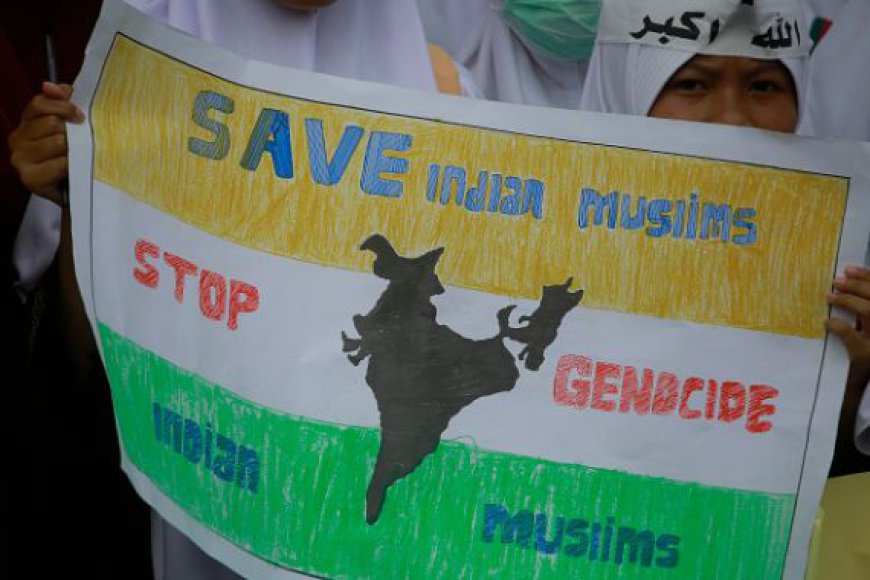Prominent Expert Raises Concerns of Impending Genocide Against Muslims in India
Renowned genocide expert, Gregory Stanton, founder of Genocide Watch, issues a grave warning about potential genocide against Muslims in India. Drawing parallels with past atrocities, he highlights concerning signs and policies. Explore the urgent concerns and responses surrounding this alarming situation.

In a recent US congressional briefing, Gregory Stanton, the renowned founder of Genocide Watch, has issued a stark warning about the potential genocide of Muslims in India. Stanton, who accurately predicted the Rwandan massacre in 1994, pointed to early signs and processes of genocide in the Indian state of Assam and Indian-administered Kashmir.
The Nature of Genocide as a Process
Stanton emphasized that genocide is not an isolated event but a process with distinct warning signs. Drawing parallels with past atrocities, he highlighted similarities between the policies pursued by Indian Prime Minister Narendra Modi and the discriminatory actions of Myanmar's government against Rohingya Muslims in 2017.
Key Policies of Concern
Stanton pinpointed specific policies contributing to the rising concerns. These include the revocation of the special autonomous status of Indian-administered Kashmir in 2019, stripping Kashmiris of autonomy they held for seven decades, and the implementation of the Citizenship Amendment Act the same year. The Citizenship Amendment Act granted citizenship to religious minorities but notably excluded Muslims.
A Fear of Replication: Myanmar's Tragic Precedent
Expressing deep concern, Stanton drew a parallel between the current situation in India and the tragic events in Myanmar, where the Rohingya were first declared non-citizens and then subjected to expulsion through violence and genocide. He warned that India might be following a similar plot.
Critique of Hindutva Ideology and Modi's Leadership
Stanton did not mince words in his critique, labeling the Hindutva ideology as "contrary to the history of India and the Indian constitution." He referred to Prime Minister Modi as an "extremist who has taken over the government." This critique is a reflection of Stanton's extensive background as a former lecturer in genocide studies and prevention.
Historical Context: Genocide Watch's Prior Warnings
Genocide Watch had previously raised concerns about India in 2002, following a three-day period of inter-communal violence in Gujarat that resulted in the killing of over 1,000 Muslims. The organization, founded in 1999, aims to predict, prevent, stop, and seek accountability for genocide.
Reactions and Urgency
Aakar Patel's Serious Consideration
Aakar Patel, a Bengaluru-based rights activist, emphasized the need to take the reports very seriously. He pointed out the historical pattern where the state either provokes violence against Muslims or fails to take sufficient action to stop it.
Government Response and Denial
In response to Genocide Watch's report, Syed Zafar Islam, the spokesperson of the ruling Bharatiya Janata Party (BJP) government, rejected the claims, stating that "no such things exist as [is] being portrayed." He argued that instances highlighted by the media were often far from reality.
International Concerns and Future Implications
As videos of Hindu religious leaders calling for mass killings circulate on social media, the Supreme Court has ordered an investigation into hate speech in Uttarakhand state. The international community is increasingly expressing concern over the safety of religious minorities in India.
Conclusion: Urgent Need for Attention
In conclusion, Gregory Stanton's warning raises urgent questions about the potential humanitarian crisis unfolding in India. As the international community turns its focus toward the country, the need for careful scrutiny, diplomatic intervention, and collaborative efforts to prevent a catastrophic scenario becomes increasingly evident. The complex interplay of politics, ideology, and historical tensions demands immediate attention and action.







